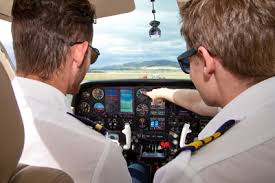
Embarking on a career in aviation is a thrilling prospect that demands meticulous training and education. Aspiring pilots often face the decision of whether to attend a flight college or a traditional flight school. Both pathways have their merits, offering unique advantages tailored to individual preferences and career goals. In this article, we explore the benefits of attending flight college versus flight school, helping aspiring aviators make an informed decision about their journey into the skies.
- Comprehensive Education:
Flight colleges are renowned for providing a holistic education that extends beyond the cockpit. While flight schools primarily focus on flight training, flight colleges integrate a broader curriculum, including aviation management, aeronautical science, and aviation safety. This comprehensive education equips students with a well-rounded understanding of the aviation industry, enhancing their potential for diverse career opportunities within the field.
- Degree Programs:
One of the key distinctions between flight colleges and flight schools lies in the degree programs they offer. Flight colleges often provide Bachelor’s and even Master’s degrees in aviation-related fields. These academic credentials not only enhance a pilot’s knowledge base but also open doors to leadership and management roles in the aviation industry. Flight schools, on the other hand, typically offer certifications without the depth of academic qualifications that flight colleges provide.
- Networking Opportunities:
Flight colleges frequently foster a rich environment for networking and collaboration. Students have the chance to interact with industry professionals, guest speakers, and fellow students pursuing various roles in aviation. This networking can prove invaluable for future career prospects, providing opportunities for internships, mentorships, and potential job placements upon graduation.
- Cutting-edge Technology:
Flight colleges often boast state-of-the-art facilities and access to the latest aviation technology. This includes advanced flight simulators, modern aircraft fleets, and cutting-edge training tools. Exposure to such resources not only enhances the learning experience but also ensures that graduates are well-versed in the technology prevalent in the aviation industry today.
- Diverse Career Paths:
While flight schools primarily focus on producing pilots, flight colleges offer a broader spectrum of career paths within the aviation industry. Graduates may find opportunities in aviation management, air traffic control, aviation safety, or even aviation research. This diversity allows individuals to pivot within the industry based on evolving interests and career goals.
Conclusion:
Ultimately, the choice between attending a flight college or a flight school depends on individual preferences, career aspirations, and educational goals. Flight schools are excellent for those who seek an expedited path to becoming a pilot, while flight colleges cater to individuals who desire a comprehensive education and a broader array of career opportunities within the aviation industry. Whichever path an aspiring aviator chooses, the sky is the limit, and both options offer a solid foundation for a successful career in aviation.



